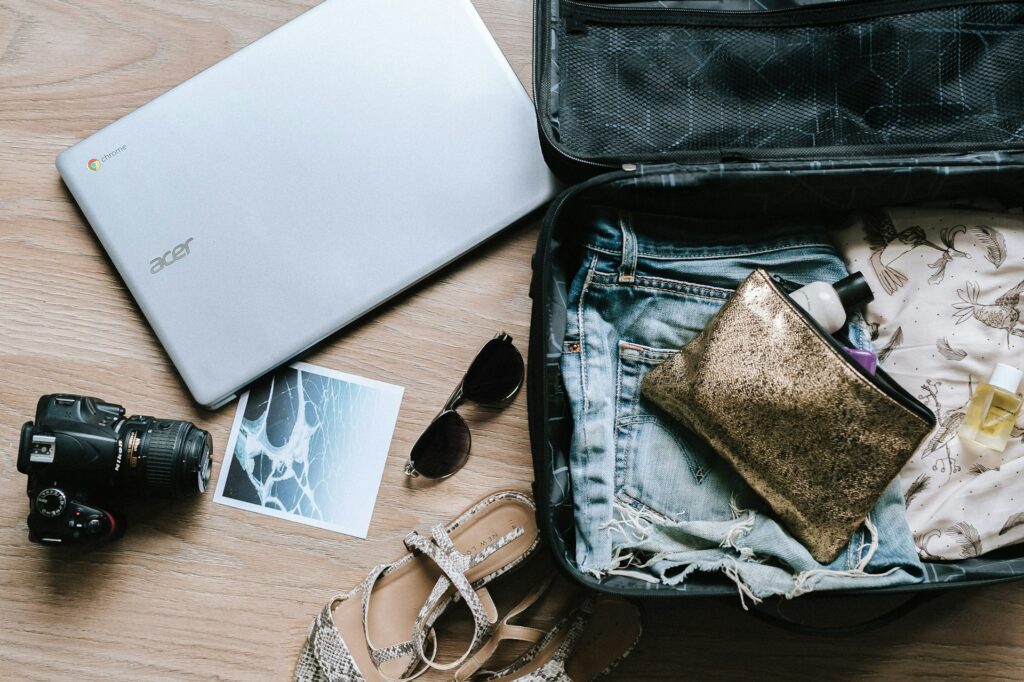How to Make Travel Planning Simple, Smooth, and Exciting
Planning a memorable trip involves more than just booking flights and accommodations. It’s about creating experiences, anticipating the unexpected, and making sure everything aligns with your travel goals and interests. Whether you’re exploring a new city or heading out on a cross-country road trip, careful planning ensures you get the most out of your time away.
This guide shares the best tips for planning an unforgettable trip—covering everything from early research to packing strategies. Whether you’re traveling solo, with friends, or as a family, these tips will help make your trip smoother, more enjoyable, and full of great memories.
If you want to pack smarter and make your travels even easier, don’t miss our lists of the best travel hacks and top things to pack for any vacation.
The Top 20 Tips for Planning an Unforgettable Trip
1. Define Your Trip Goals
Start by asking yourself what kind of experience you want—relaxation, adventure, cultural immersion, or a mix of everything. Your trip goals will shape every other part of the planning process. Are you looking to unwind on a beach, hike mountain trails, or explore museums? Identifying your main priorities helps you choose the right destination, budget accordingly, and structure your itinerary with purpose.
2. Choose the Right Time to Travel
Timing can make or break a trip. Consider the season, weather, local events, and peak tourist times. Off-season travel often means lower costs and fewer crowds, but some attractions may be closed. Researching the best time to visit your destination can save money and improve your experience. Try to plan around festivals, holidays, or natural events that could enhance your trip—or complicate it.

3. Set a Realistic Budget
Establish your travel budget early so you can plan within your means. Consider flights, accommodations, meals, transportation, activities, and spending money. Don’t forget extras like tips, souvenirs, and emergency funds. A well-planned budget helps prevent stress later and ensures you make thoughtful decisions about how to spend your money while traveling.
4. Book Flights and Accommodations Early
Booking in advance often means better rates and more choices. Use fare trackers and deal alerts to find the best prices on flights. For accommodations, consider hotels, hostels, vacation rentals, or unique stays like cabins or boutique inns. Think about location, amenities, and guest reviews before making your final decision.
5. Research Local Customs and Etiquette
Every destination has its own culture and expectations. Learning about local customs, dress codes, tipping practices, and etiquette shows respect and helps you avoid uncomfortable situations. Even learning a few key phrases in the local language can go a long way in connecting with people and making your trip smoother.
6. Make a Flexible Itinerary
While it’s good to have a plan, leave room for spontaneity. Overloading your schedule can turn your trip into a stressful checklist. Prioritize a few must-do experiences each day and leave space for relaxing or exploring at your own pace. Flexibility allows you to adjust if you discover something unexpected or need a break.

7. Use Travel Apps and Tools
Technology can be a traveler’s best friend. Use apps for navigation, language translation, itinerary management, booking confirmations, and local recommendations. Apps like Google Maps, TripIt, and Rome2Rio can streamline your entire experience. Having everything in one place helps reduce stress and keeps you organized.
8. Create a Packing List
Don’t leave packing to the last minute. A checklist ensures you bring what you need without overpacking. Start with essentials—clothes, toiletries, chargers, travel documents—and then add destination-specific items like hiking gear or swimwear. A thoughtful packing list makes travel days smoother and helps you avoid forgotten items.
9. Check Passport and Visa Requirements
Make sure your passport is valid for at least six months beyond your return date. Research whether your destination requires a visa and how to obtain one. Some countries also require proof of vaccinations or travel insurance. Handling these early prevents last-minute problems and travel delays.
10. Plan for Transportation on Arrival
Know how you’re getting from the airport or station to your accommodation. Research public transit options, shuttle services, or ride-shares ahead of time. Having a plan for your arrival sets a calm tone for the rest of your trip and avoids confusion in unfamiliar environments.
11. Protect Your Travel Documents
Make digital and paper copies of important documents—passport, ID, insurance, bookings—and store them in different places. You never know when you might need backup. Keeping documents secure and accessible can save you from major headaches in case of loss or theft.
12. Look for Local Experiences
Beyond the tourist highlights, explore what makes a place truly unique. Seek out local restaurants, markets, art galleries, and cultural events. Guided walking tours, cooking classes, or meetups can offer authentic experiences and meaningful memories. These personal touches often become the highlights of your trip.

13. Pack Light
The lighter your luggage, the easier your trip. Stick to versatile clothing you can mix and match and avoid packing items “just in case.” Carry-on travel encourages simplicity and helps you move more freely. Remember, you can often do laundry or buy items you forgot at your destination.
14. Plan for Health and Safety
Bring any necessary medications, hand sanitizer, and a small first-aid kit. Research local emergency numbers, hospitals, or clinics near your accommodation. Also, consider travel insurance to protect against medical or trip-related issues. Being prepared gives you peace of mind.
15. Check Connectivity Options
If you need access to data, research whether your phone plan offers international service or if you’ll need a local SIM card or portable Wi-Fi device. Being connected helps with maps, translations, and keeping in touch with loved ones. It’s also helpful in case of emergencies or unexpected changes.
16. Prepare for Different Payment Methods
Some countries rely heavily on cash, while others are card-friendly. Bring a mix of payment options, including a backup credit card, and notify your bank of travel plans. Having local currency on hand for small vendors or transportation is always a good idea.
17. Stay Sustainable When Possible
Travel can have a big impact on the environment. Choose reusable items like water bottles and tote bags, support local businesses, and be mindful of waste. Small actions like taking public transport or staying in eco-conscious hotels contribute to more responsible travel.
18. Leave Room for Rest
Don’t underestimate the importance of downtime. Jet lag, walking, and new environments can be exhausting. Build in time to rest or take leisurely days to recharge. A well-rested traveler enjoys more and remembers more.
19. Journal or Document the Experience
Capture memories with photos, videos, or a travel journal. Writing down your thoughts or recording moments as they happen helps you relive the trip later. It’s also a great way to stay present and notice details you might otherwise miss.
20. Reflect and Plan Your Next Adventure
Once the trip is over, take time to reflect on what went well and what you’d do differently next time. Organize photos, share stories, and keep the spirit of travel alive by dreaming about your next destination. Every trip teaches you something new for the next adventure.
Frequently Asked Questions About Trip Planning
How far in advance should I start planning a trip?
Start at least 2–3 months ahead for domestic trips and 6 months or more for international ones. This gives you time to research, budget, and get the best deals.
Should I book everything ahead of time?
It depends on the destination and your travel style. Popular attractions or accommodations often require advance booking, but leaving some flexibility allows room for discovery.
What if I get overwhelmed by all the planning?
Break tasks into smaller steps and use a checklist to stay organized. You can also delegate tasks to travel companions or use planning apps to help manage details.
Do I really need travel insurance?
While not required, travel insurance offers protection for medical emergencies, cancellations, and lost luggage. It can be a small price to pay for peace of mind.
Editor’s Notes on Travel Planning
This list was created to help travelers plan with confidence and creativity. Whether you’re taking a weekend trip or a month-long journey, good planning enhances the entire experience. These tips aren’t about making travel rigid—they’re about giving you the tools to stay stress-free and open to adventure.
For more helpful travel tools, be sure to check out our guides on the best things to pack and time-saving travel hacks.
Your Next Adventure Starts With a Great Plan
Travel is about discovery, connection, and new experiences—but those things are even better when supported by thoughtful planning. By using these tips, you’ll be ready to make the most of every moment, from takeoff to touchdown and everything in between.
When you’re prepared, your travels become more than just a getaway—they become unforgettable stories. Let the planning begin.


